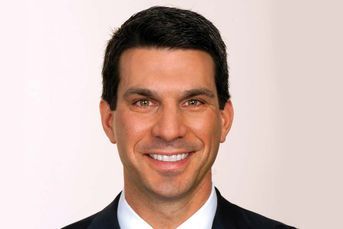Anti-money-laundering deadline puts advisers on the spot
Is a terrorist or drug dealer lurking in your midst? Broker-dealers could start leaning on registered representatives to…
Is a terrorist or drug dealer lurking in your midst?
Broker-dealers could start leaning on registered representatives to find out in the next few weeks, in order to comply with the nation’s new anti-money-laundering law.
Dealers are facing an April 24 deadline to have procedures in place and could be asking reps to fork over more information about clients – even if reps are independent – to meet the “know-your-customer” mandate in the anti-terrorism measure.
Industry insiders are debating exactly how much information reps will have to provide.
“What we’re hearing is that there’s debate about how much information a broker-dealer can request from reps and what their obligation in turn may be,” says David Tittsworth, executive director of the Investment Counsel Association of America, a Washington trade group for registered investment advisers.
Getting intimate
President Bush signed the USA Patriot Act into law Oct. 26 in response to the Sept. 11 terrorist attacks on the World Trade Center and Pentagon. Among other things, it enlists banks, broker-dealers and the like in the fight against terrorism.
Under the act, financial firms must draw up internal policies, procedures and controls; designate a compliance officer; create an employee-training program; and allow an independent audit of the effort to test its effectiveness.
Companies also are waiting for further guidance from the Securities and Exchange Commission, the Department of the Treasury and the National Association of Securities Dealers, all of which are working toward finalizing details to carry out the law’s intent.
Investment advisers fall outside the purview of the new law, but many experts say they won’t escape involvement by virtue of their frontline relationship with clients.
“It’s the representatives who know the customer, so it’s the reps’ responsibility to disclose whatever the broker-dealers need,” says Nancy Johnson, president of Strategic Compliance Concepts Ltd. in Lanark, Ill., and a member of the Financial Planning Association’s compliance advisory council. But it remains unclear as to exactly what additional information might be needed.
Already, NASD rules require firms to maintain certain basic information about account holders, such as the customer’s name and residence. They are also expected to keep customer Social Security numbers and job information on file.
Getting to the next level of intimacy may be more of a challenge.
“If I’m a broker-dealer and I say, `I need to know my customer, so give me XYZ information,’ you can say you have a confidential relationship with your client,” says Mr. Tittsworth. “Then I say, `I’ve got the obligation under law. What are you going to do about it?”‘
Some experts speculate that broker-dealers and other financial institutions may set up a certification process. “They may say, `Either you certify that you’ve done the due diligence, or turn over the information to us and we’ll do it,”‘ says one industry expert.
Investment advisers eventually also could have to adopt their own anti-money-laundering policies.
“They should pay attention to what’s going on,” says Satish Kini, a partner in the Washington law firm Wilmer Cutler & Pickering LLP and an expert on money-laundering laws.
“The Treasury Department has fairly broad regulatory authority to expand the scope of regulations to cover investment advisers,” he adds.
Some broker-dealers, Mr. Kini says, already are asking some of their reps if their personal firms have formal policies in place to combat money laundering.
For its part, the Securities Industry Association, whose members include broker-dealers, has issued a slew of best-practices guidelines for its members.
At the least, say experts, advisers need to watch for red flags.
Those include transactions that don’t make sense for a given customer, and numerous accounts held in different names or corporations for no apparent business reason.
They also include customers’ lack of concern about investment objectives, risks, fees or commissions; large sums of money in money market accounts; and transactions structured in amounts less than $10,000 that make no sense.
“Broker-dealers want to comply with the law, but they don’t want to step over the line if they don’t have to,” says Ms. Johnson. “Some of that will shake out once things are in place.”
Learn more about reprints and licensing for this article.





